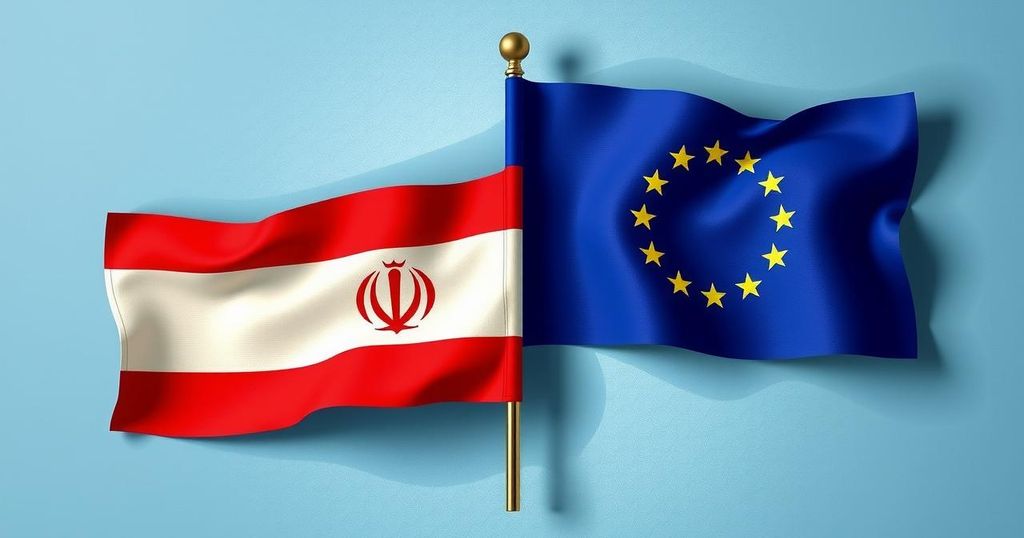Iran Achieves Observer Status in the Eurasian Economic Union

Iran was granted observer status in the Eurasian Economic Union (EEU), allowing for expanded trade relations. The Iran-EEU Free Trade Agreement aims to eliminate tariffs on 87% of goods traded, further enhancing economic cooperation. Both countries will identify sensitive goods for tariff exemption to protect domestic industries. This represents a notable step in strengthening ties between Iran and EEU member states, amid increasing trade turnover and ongoing discussions for further agreements with Russia and China.
Iran has achieved observer status in the Eurasian Economic Union (EEU), as announced during the Supreme Eurasian Economic Council meeting held in St. Petersburg, Russia, on December 26. This development is underscored by the Iran-Eurasian Economic Union Free Trade Agreement, which is anticipated to eliminate tariffs on 87% of traded goods. Both Iran and EEU countries will identify sensitive goods exempted from tariff elimination to protect their respective industries.
The announcement was made by Maxim Reshetnikov, Russia’s Minister of Economic Development, highlighting the strategic importance of strengthening economic ties with Iran. The EEU’s decision to confer observer status to Iran follows a year after the initial agreement was signed, reflecting a sustained commitment to enhance trade relations, which have seen significant growth over recent years.
Trade between Iran and the EEU has escalated notably, from $2.7 billion in 2018 to $5.2 billion by 2023, with a promising start to 2024 as mutual trade increased by 12.8% year-on-year. Bakytzhan Sagintayev, Chairman of the Eurasian Economic Commission (EEC), expressed optimism regarding the forthcoming agreement, stating it will undoubtedly foster better economic interactions.
With Iran’s inclusion, the EEU now has three observer nations alongside Uzbekistan and Cuba. The EEU aims to promote economic collaboration among member states—Russia, Kazakhstan, Belarus, Armenia, and Kyrgyzstan—as well as with observer countries. The groundwork for this cooperation began in 2017, leading to a temporary trade agreement that significantly benefited Iranian exports.
Furthermore, Iran is also pursuing deeper economic ties with Russia and China, as evidenced by an anticipated comprehensive cooperation agreement aimed at bolstering international partnerships amid potential increasing sanctions from Western nations. President Masoud Pezeshkian’s upcoming visit to Russia is expected to culminate in the signing of this pivotal agreement.
The Eurasian Economic Union (EEU) is a regional economic bloc that seeks to enhance economic integration among its five founding states: Russia, Kazakhstan, Belarus, Armenia, and Kyrgyzstan. An essential part of its strategy involves extending trade relations beyond its borders, which has led to the inclusion of observer states like Iran, Uzbekistan, and Cuba. The agreement with Iran represents a significant step towards strengthening economic bonds in light of increasing global tensions and the importance of regional collaboration. This accords well with Iran’s broader strategy to deepen its economic links beyond traditional partners, particularly amidst challenges posed by international sanctions.
In summary, Iran’s acquisition of observer status within the Eurasian Economic Union marks a significant milestone for both parties, promising enhanced trade and economic collaboration. The forthcoming trade agreements aim to eliminate tariffs on most goods, alongside provisions for protecting sensitive industries. The impressive growth of trade between Iran and the EEU in recent years underscores the potential benefits of this partnership, while Iran’s strategic pivot towards cooperation with nations like Russia and China reflects its commitment to bolster its economic standing in a challenging global landscape.
Original Source: www.intellinews.com








